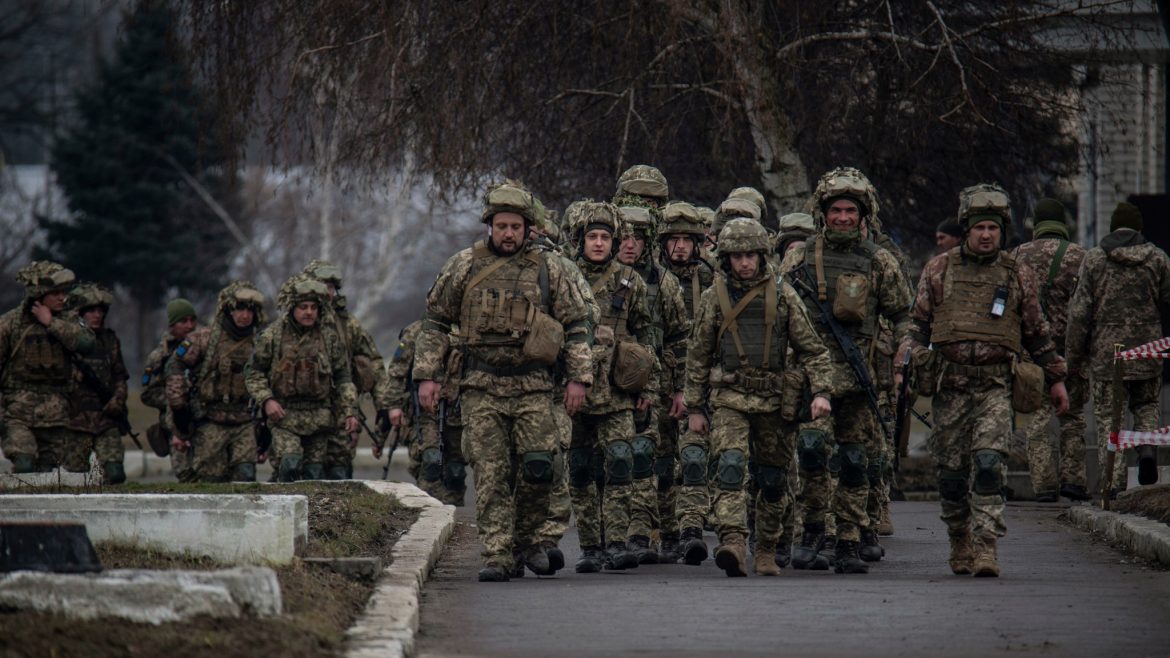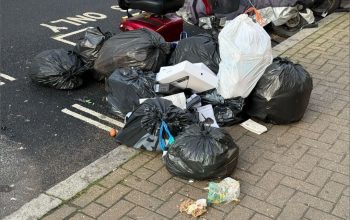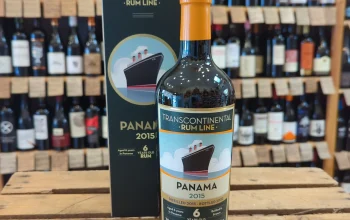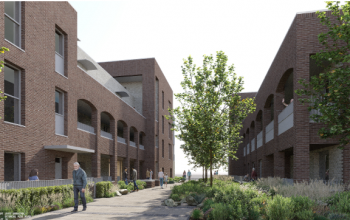On February 24 at around 3am UK time during a televised speech, Russian President Vladimir Putin said he had made the decision to launch “a special military operation” in Ukraine.
Minutes later explosions were heard across Ukraine in Kyiv, Kharkiv, Odessa and Donbas and Russian military vehicles were seen crossing into Ukraine’s borders.
Putin said: “Whoever tries to interfere with us, or threaten our country should know that Russia’s response will be immediate and lead to such consequences that have never been experienced in history.”
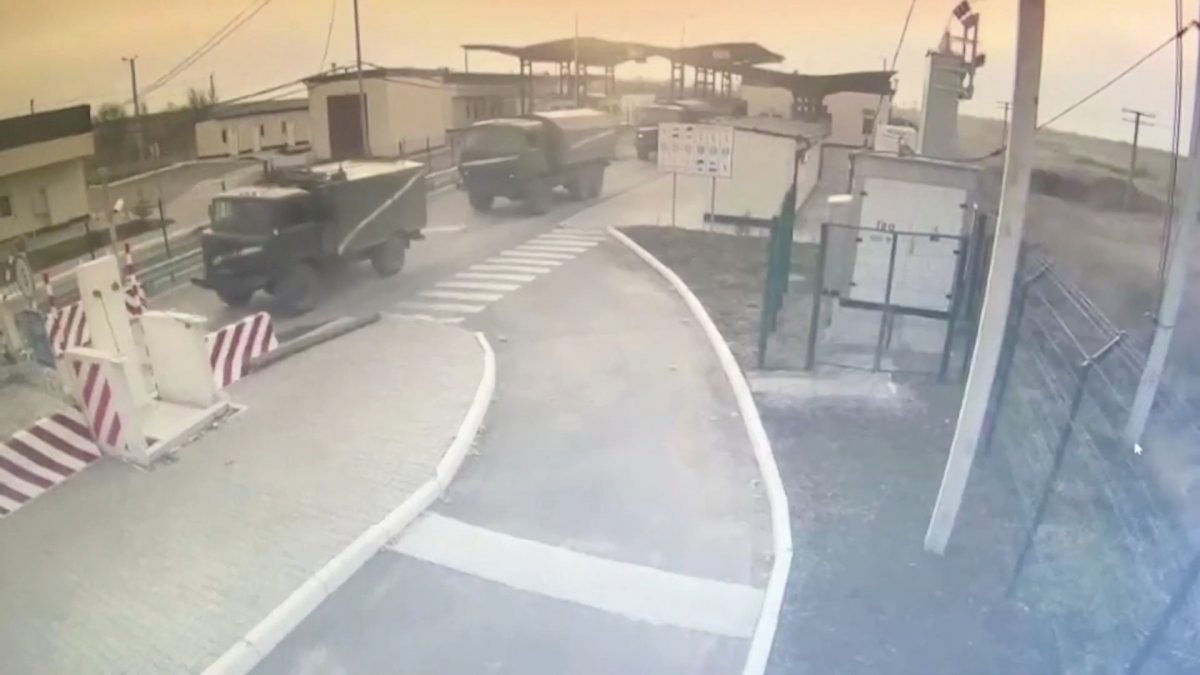
Photo: EyePress News/Shutterstock
What is causing the tension?
On February 22 Russia recognised separatist claims over Donetsk and Luhansk also known as Donbas and under Putin’s orders Russian troops have been stationed in the two rebel-held regions.
The conflict in Eastern Ukraine started in 2014 and the eight years of conflict led to over 14,000 lives claimed in the war.
Since 2014 Ukrainian government forces fought Russian-backed separatists for control over Donbas.
In the eight years of conflict there has also been the Russian annexation of Crimea (2014). Russia seized Ukraine’s southern region of Crimea due to tensions over Moscow’s claim on Crimea.
This claim dates back to when Russians colonised Crimea during the reign of Catherine the Great and founded Sevastopol, the peninsula’s main port and largest city.
When Putin decided to invade Ukraine in February he broke a 2015 Minsk peace deal and accused Nato of threatening Russia’s “historic future as a nation”, claiming Nato countries wanted to bring war to Crimea.
Putin made a further televised address and announced a military operation in Donbas and urged Ukraine soldiers to surrender their combat zones in eastern Ukraine. He told Ukraine that it would be blamed for any bloodshed.
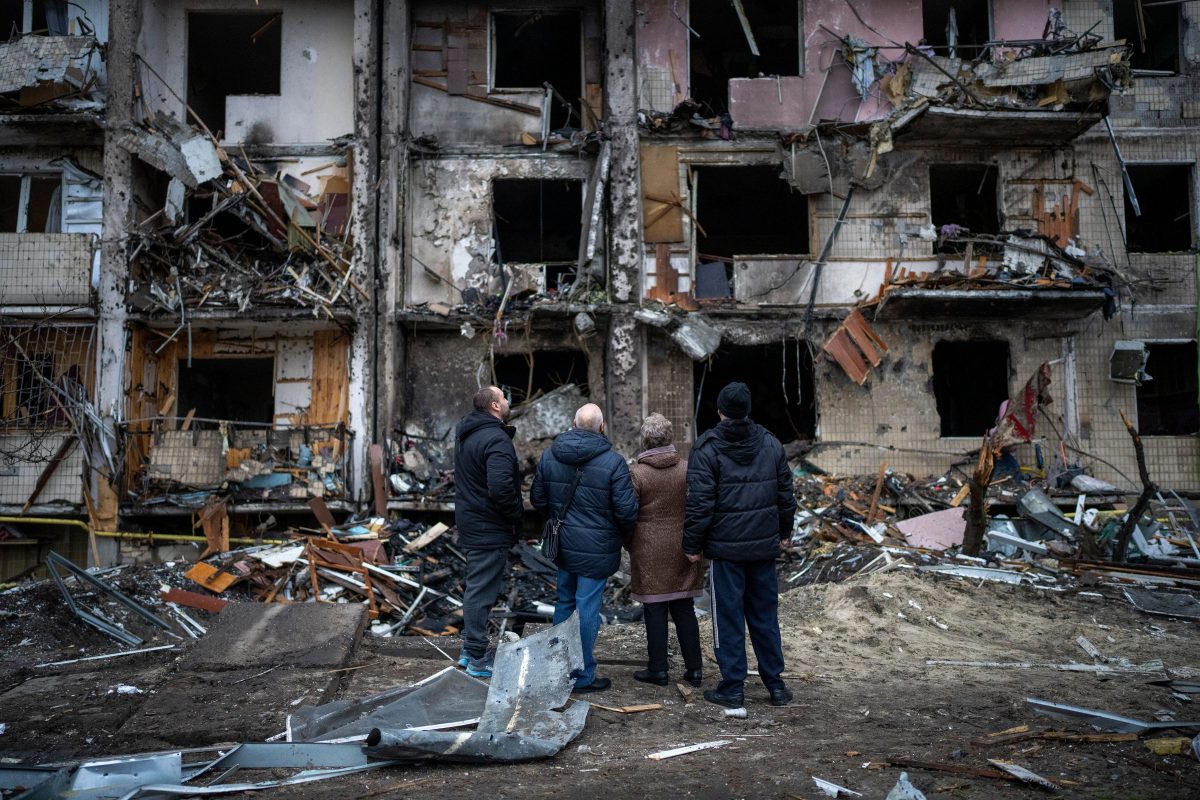
Photo: Emilio Morenatti/AP/Shutterstock
How President Zelenskyy responded
In February Ukrainian President Volodymyr Zelenskyy said: “If they attack, if they try to take our county, our freedom, our lives, the lives of our children- we will be defending ourselves.
“As you attack, it will be our faces you see, not our backs.”
This speech was directed to Russian citizens and urged them to stop their president from launching a war on Ukraine.
But after the invasion began Zelenskyy made a powerful statement and said: “We broke off diplomatic relations with Russia. Ukraine is defending itself and will not give up its freedom, no matter what Moscow thinks.”
Reports of missiles strikes were confirmed across Ukraine and traffic grinded to a halt as civilians started to evacuate the capital Kyiv in February with millions of citizens displaced because of the invasion.
On February 25 Zelenskyy ordered the full mobilisation of the Ukrainian military for 90 days and asked residents of Kyiv to prepare Molotov cocktails to neutralise the enemy as Russian’s troops approached.
Former heavyweight boxing champion Vitali Klitschko, who is the Mayor of Kyiv said people were shocked to hear explosions in the city and Ukrainians will be ‘fighting for our future’.
Citizens of Ukraine were encouraged by Zelenskyy who had swapped office attire for a military uniform to take up arms to defend the country with weapons made available to everyone who wanted them.
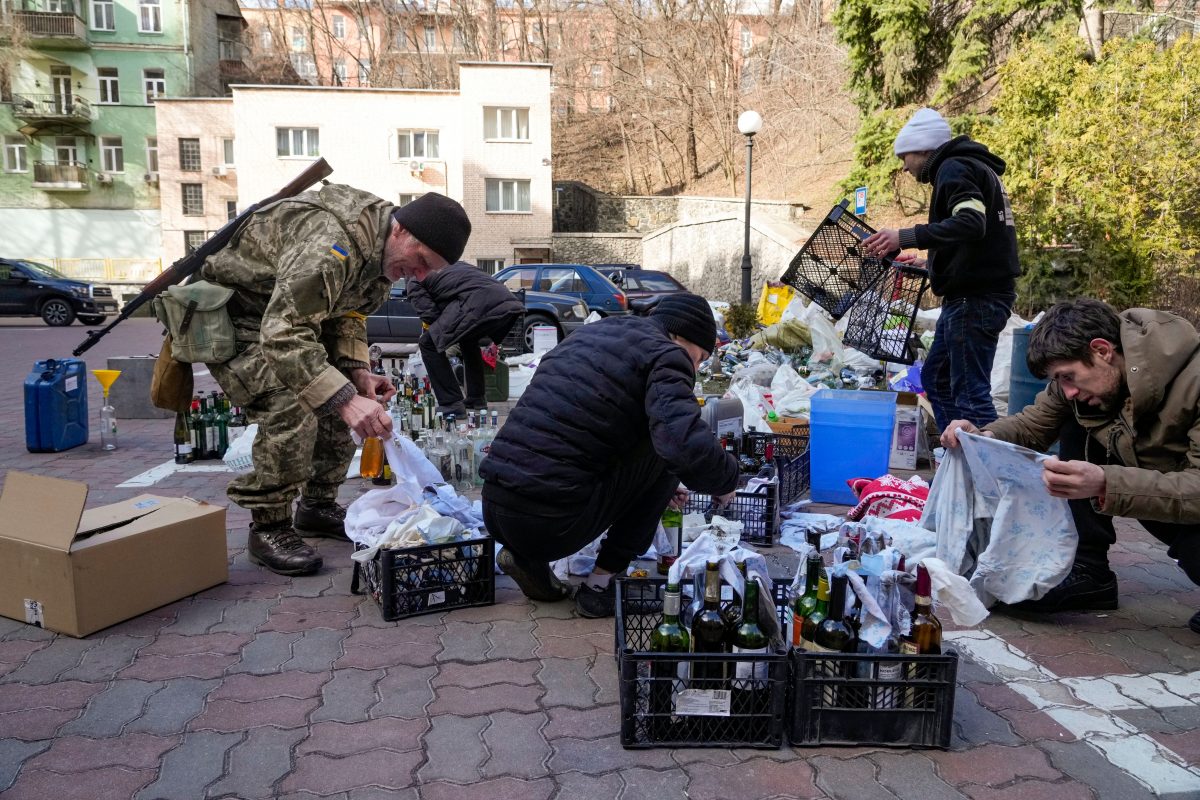
Photo: Efrem Lukatsky/AP/Shutterstock
What was Putin’s goal?
During a televised speech in February, Putin asked the Ukrainian military to “take power into your own hands” and indicated that the military should overthrow political leaders in Ukraine in order to reach a peace deal.
Since Ukraine achieved independence in 1991 when the Soviet Union collapsed, it has gradually gravitated towards the EU and Nato and Putin is opposed to Ukraine joining Nato.
After he launched the invasion Putin told his people he wanted to “demilitarise and de-Nazify Ukraine” after what he said was eight years of bullying and genocide by Ukraine’s government.
“It is not our plan to occupy the Ukrainian territory,” he said and insisted Russian forces were undertaking a “special military operation.”
Russia intended to reach the capital Kyiv by invading from Belarus but met Ukraine’s fierce resistance which caused heavy losses and drove Russian forces back.
According to Ukraine’s government, Belarus, a Russian ally that borders Ukraine to the north has allowed tens of thousands of Russian troops to cross the border into Ukraine.
Putin has ordered the Russian military to put its nuclear forces on ‘special alert’. This is the highest level of alert for Russia’s Strategic Missile Forces in response to what he called aggressive Nato statements. The US have blasted this move as ‘unacceptable’.
Meanwhile in Russia thousands of anti-war protesters have been detained and the majority of independent media have been silenced.
How did world leaders respond to the events?
The world was left shocked by Russia’s aggression and some feared this could be the brink of another world war.
US President Joe Biden released a statement and said: “President Putin has chosen a premeditated war that will bring a catastrophic loss of life and human suffering.
“Russia alone is responsible for the death and destruction this attack will bring, and the United States and its allies and partners will respond in a united and decisive way.
“The world will hold Russia accountable.”
UK Prime Minister Boris Johnson said: “I am appalled by the horrific events in Ukraine and I have spoken to President Zelenskyy to discuss next steps.
“President Putin has chosen a path of bloodshed and destruction by launching this unprovoked attack on Ukraine.
“The UK and our allies will respond decisively.”
European Commission President Ursula von der Leyen, spoke in Brussels and condemned Putin for “bringing war back to Europe”.
French president Emmanuel Macron spent hours in a one-to-one meeting with Putin and said Russia must stop its military action.
Ukrainian Minister of Foreign Affairs Dmytro Kuleba, pleaded for assistance from the world.
Pope Francis addressed an audience in St Peter’s Square and said: “Let the weapons fall silent. God is with those who seek peace, not those resorting to violence.”
Nato issued a statement and condemned the attack on Ukraine as “entirely unjustified and unprovoked.”
The statement also said “Russia’s actions pose a serious threat to Euro-Atlantic security, and they will have geo-strategic consequences. Nato will continue to take all necessary measures to ensure the security and defence of all allies.”
Protests have taken place around the world in protest against Russias aggression on Ukraine.
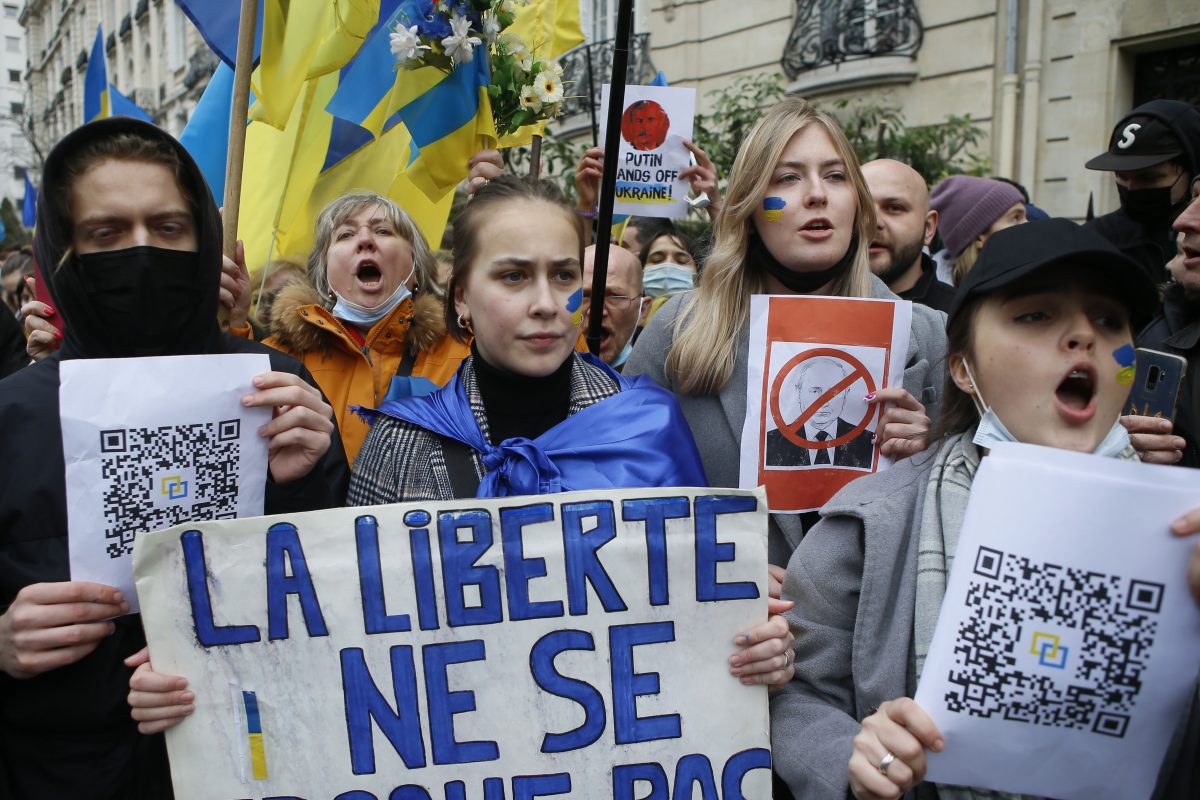
Photo: Alfonso Jimenez/Shutterstock
Sanctions imposed on Russia
Ukraine called for huge sanctions on Russia which led to an emergency G7 meeting to discuss what sanctions could be imposed.
The UK, US, EU and Japan swiftly imposed sanctions against Russian banks and MP’s who backed the invasion.
The sanctions imposed by the UK set financial consequences on Russia with Russian banks having assets frozen and excluded from the UK financial system, major Russian companies unable to borrow money on UK markets and the Aeroflot banned from landing in the UK.
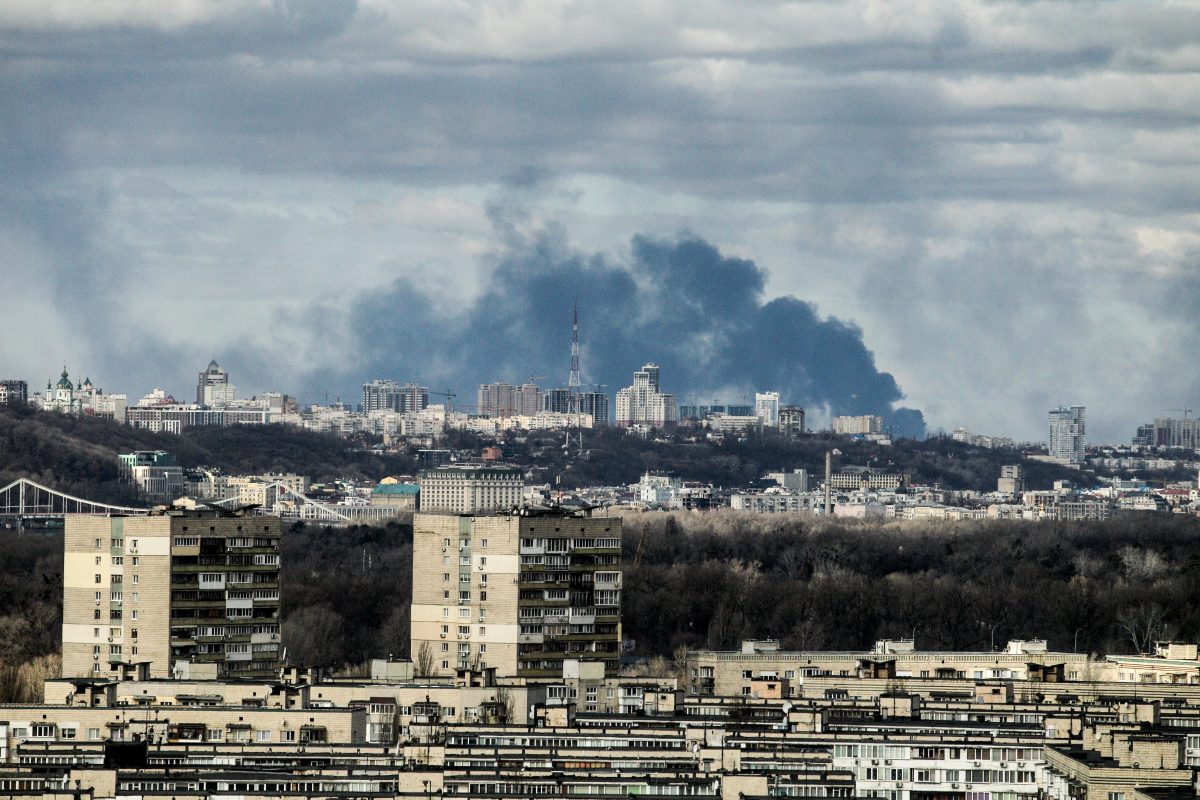
Photo: Ukrinform/Shutterstock

